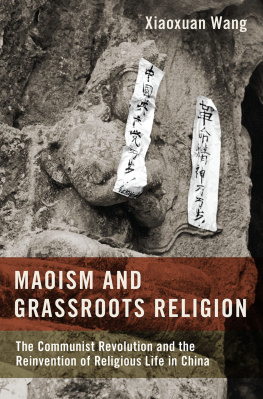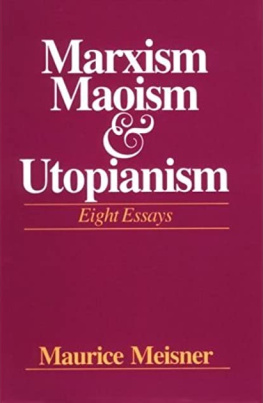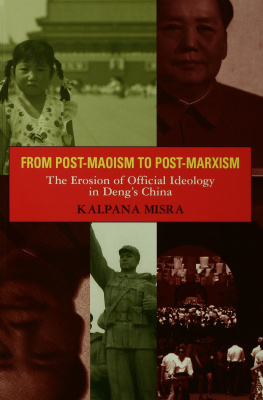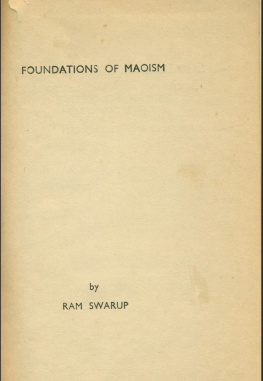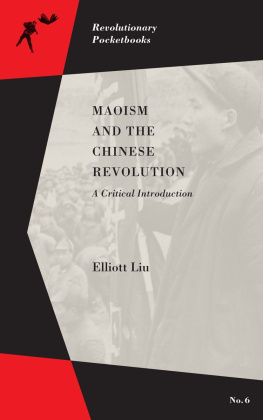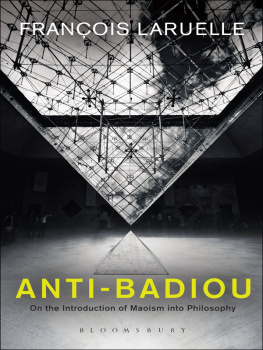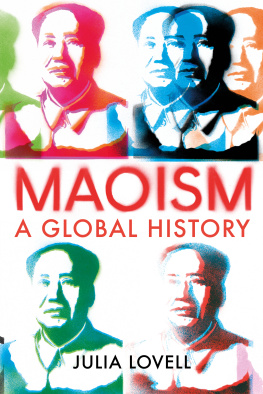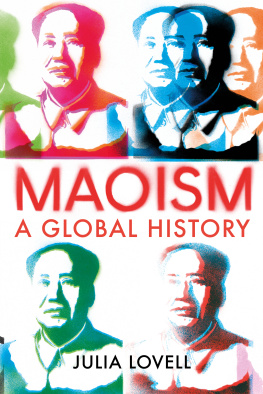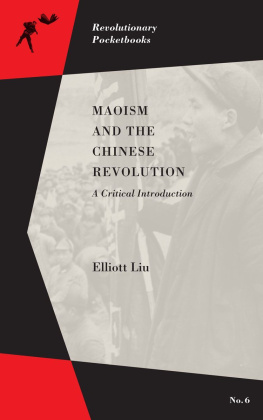J. Moufawad-Paul - Continuity and Rupture: Philosophy in the Maoist Terrain
Here you can read online J. Moufawad-Paul - Continuity and Rupture: Philosophy in the Maoist Terrain full text of the book (entire story) in english for free. Download pdf and epub, get meaning, cover and reviews about this ebook. year: 2016, publisher: Zero Books, genre: Science. Description of the work, (preface) as well as reviews are available. Best literature library LitArk.com created for fans of good reading and offers a wide selection of genres:
Romance novel
Science fiction
Adventure
Detective
Science
History
Home and family
Prose
Art
Politics
Computer
Non-fiction
Religion
Business
Children
Humor
Choose a favorite category and find really read worthwhile books. Enjoy immersion in the world of imagination, feel the emotions of the characters or learn something new for yourself, make an fascinating discovery.

- Book:Continuity and Rupture: Philosophy in the Maoist Terrain
- Author:
- Publisher:Zero Books
- Genre:
- Year:2016
- Rating:5 / 5
- Favourites:Add to favourites
- Your mark:
- 100
- 1
- 2
- 3
- 4
- 5
Continuity and Rupture: Philosophy in the Maoist Terrain: summary, description and annotation
We offer to read an annotation, description, summary or preface (depends on what the author of the book "Continuity and Rupture: Philosophy in the Maoist Terrain" wrote himself). If you haven't found the necessary information about the book — write in the comments, we will try to find it.
Continuity and Rupture: Philosophy in the Maoist Terrain — read online for free the complete book (whole text) full work
Below is the text of the book, divided by pages. System saving the place of the last page read, allows you to conveniently read the book "Continuity and Rupture: Philosophy in the Maoist Terrain" online for free, without having to search again every time where you left off. Put a bookmark, and you can go to the page where you finished reading at any time.
Font size:
Interval:
Bookmark:
WHAT PEOPLE ARE SAYING ABOUT
CONTINUITY AND RUPTURE
This is a fascinating must-read and highly readable book; even if you disagree with the authors arguments, you will reconsider much of the rhetoric that we take for granted regarding Maoism. Roxanne Dunbar-Ortiz, author of An Indigenous Peoples History of the United States
Continuity and Rupture is Moufawad-Pauls theorization of a political and revolutionary thought of today. This book offers an active framework for understanding the Maoist turn in Marxism, which the author grounds in a challenging vision of history and a necessity for social change.
Julian Jason Haladyn, author of Boredom and Art
Capitalism is headed for disaster. Any serious attempt to alter the course of history requires revolutionary theory. Whether you agree with J. Moufawad-Pauls conclusions or not, this book raises the questions we all need to ask.
Gabriel Kuhn, author of Life Under the Jolly Roger and Turning Money Into Rebellion
Calling all organizers, anti-capitalists, and people who care about anticolonial struggle this book is for you. Beautifully clear, Moufawad-Paul lays out the concepts that we almost never get to learn in our schools or in our social movementsthe concepts that many have struggled to grasp and applythe concepts that are necessary for revolution. Placing the tools of western philosophy in the service of explicating the significance and necessity of actually-existing Maoism, this book is an accessible and compelling primer in science, theory, philosophy, and revolution. This book is just in time. At its heart, it is an historical materialist account of the unfolding of revolutionary praxis through the rupture and continuity of Marxist-Leninism and Marxism-Leninism-Maoism. Moufawad-Paul begins his periodization and clarification of Maoism from the revolutionary theory of the Community Party of Peru and the Communist (Maoist) Party of Afghanistan situated in the global struggle against capitalism-imperialism. And for you, eurocentric academic Marxists: you have been put on noticeyou cant say you havent been told.
Rachel Gorman, Associate Professor in Critical Disability Studies, York University
Moufawad-Pauls Continuity and Rupture is a much welcomed attempt to bring philosophical clarity to political debates which all too often are wrapped around vague terms at the expense of conceptual clarity. Its central thesis claims that Maoism is a coherent theoretical development that both continues the revolutionary content of Leninist theory and breaks with its historical limitations, thus opening up a new set of theoretical possibilities ultimately rooted in the scientific propositions of historical materialism. It is a provocative thesis, but one that is lucidly explored by Moufawad-Paul. This is a book that should renew interest in historically concrete forms of Marxist theory and produce spirited, but invaluable, debate on the nature of Maoism. Highly recommended for both practical and philosophical reasons!
Esteve Morera, author of Gramscis Historicism and Gramsci, Materialism and Philosophy
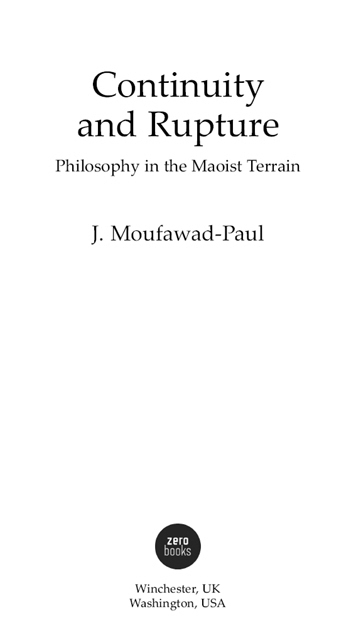
First published by Zero Books, 2016
Zero Books is an imprint of John Hunt Publishing Ltd., Laurel House, Station Approach,
Alresford, Hants, SO24 9JH, UK
office1@jhpbooks.net
www.johnhuntpublishing.com
www.zero-books.net
For distributor details and how to order please visit the Ordering section on our website.
Text copyright: J. Moufawad-Paul 2015
ISBN: 978 1 78535 476 2
978 1 78535 477 9 (ebook)
Library of Congress Control Number: 2016936941
All rights reserved. Except for brief quotations in critical articles or reviews, no part of this book may be reproduced in any manner without prior written permission from the publishers.
The rights of J. Moufawad-Paul as author have been asserted in accordance with the Copyright, Designs and Patents Act 1988.
A CIP catalogue record for this book is available from the British Library.
Design: Lee Nash
Printed and bound by CPI Group (UK) Ltd, Croydon, CR0 4YY, UK
We operate a distinctive and ethical publishing philosophy in all areas of our business, from our global network of authors to production and worldwide distribution.
For comrades Gabrielle, Christophe, and Hamayon
Clearly, both continuity and rupture are part of the process of the evolution of every science, because this process of evolutionof every phenomenon in the natural realm, society and human thoughtis informed by the unity of opposites. Communist (Maoist) Party of Afghanistan
Whence a revolution in Marxism, the Maoist revolution.
Alain Badiou
Abbreviations
CmPA = Communist (Maoist) Party of Afghanistan
CPI (Maoist) = Communist Party of India (Maoist)
CPI (ML) = Communist Party of India (Marxist-Leninist)
CPI (ML) Naxalbari = Communist Party of India (Marxist-Leninist) Naxalbari
CPI (ML) PWG = Communist Party of India (Marxist-Leninist) Peoples War Group
CPN (Maoist) = Communist Party of Nepal (Maoist)
CPP = Communist Party of the Philippines
CWG (Marxist-Leninist) = Communist Workers Group (Marxist-Leninist)
GPCR = Great Proletarian Cultural Revolution
MCC = Maoist Communist Centre
MIM = Maoist Internationalist Movement
MKP = Maoist Communist Party of Turkey
nPCI = The New Communist Party of Italy
PCI (Maoist) = Communist Party of Italy (Maoist)
PCMF = Maoist Communist Party of France
PCP = Communist Party of Peru
PCR-RCP = Revolutionary Communist Party of Canada
PPW = protracted peoples war
RCP-USA = Revolutionary Communist Party, USA
RIM = Revolutionary Internationalist Movement
RU = Revolutionary Union
TKP/ML = Communist Party of Turkey Marxist-Leninist
WCP = Workers Communist Party of Canada
Prologue
Maoism and Philosophy
Before 1988 Maoism did not exist. I begin with this counter-intuitive statement in order to clarify the particular theoretical position that is the concern of this book. In The Communist Necessity, the polemical prolegomena to this book, I argued that there needed to be a new return to the concept of the revolutionary partya reclaiming of the theoretical tradition marked by world-historical revolutionsand that this new return was to be found in the three-headed beast of Marxism-Leninism-Maoism. Unfortunately some of my critics, unaware that The Communist Necessity was primarily a polemical introduction to a philosophical intervention that still needed to be written, made the mistake of conflating my demand for a new return with the very old return that I warned about: they assumed that, by arguing for a Maoist party of the new type, I was arguing for an unqualified and uncritical return to the partybuilding experiments, and actually-existing socialisms, that had reached their limits in the mid-20th-century. In point of fact, and this is one of my main claims, Maoism is not an old-fashioned Marxism but, unlike all of those demands to return to Marx (again fashionable following the crisis of 2008 and the onslaught of austerity), a modern theoretical terrain.
The moment one speaks of returning to the concept of a revolutionary communist party, and motivates this return with a reclamation of past categories of struggle (i.e. the vanguard, proletariat-bourgeoisie, revisionism and anti-revisionism, revolutionary science), every defense mechanism conditioned by the collapse of the Eastern Bloc and the supposed triumph of world capitalism is mobilized to inoculate the reader from ideological contamination. There is a common assumption that such a demand is orthodox despite the fact that a rejection of the party might also be orthodox: it is the orthodoxy of a movementist understanding of reality, the contemporary first-world lefts dogma, or even the orthodoxy of a return to a pre-Lenin Marx untainted by revolution. Then there is the rejection of applying the category of science to Marxism which is seen by some as old-fashioned but might be a misidentification with the general category of science with its natural and hard iterations. There is often scant investigation of what is meant by the employment of the categories of party and science or what theoretical constellation could be mobilized under the rubric of a new return.
Next pageFont size:
Interval:
Bookmark:
Similar books «Continuity and Rupture: Philosophy in the Maoist Terrain»
Look at similar books to Continuity and Rupture: Philosophy in the Maoist Terrain. We have selected literature similar in name and meaning in the hope of providing readers with more options to find new, interesting, not yet read works.
Discussion, reviews of the book Continuity and Rupture: Philosophy in the Maoist Terrain and just readers' own opinions. Leave your comments, write what you think about the work, its meaning or the main characters. Specify what exactly you liked and what you didn't like, and why you think so.

